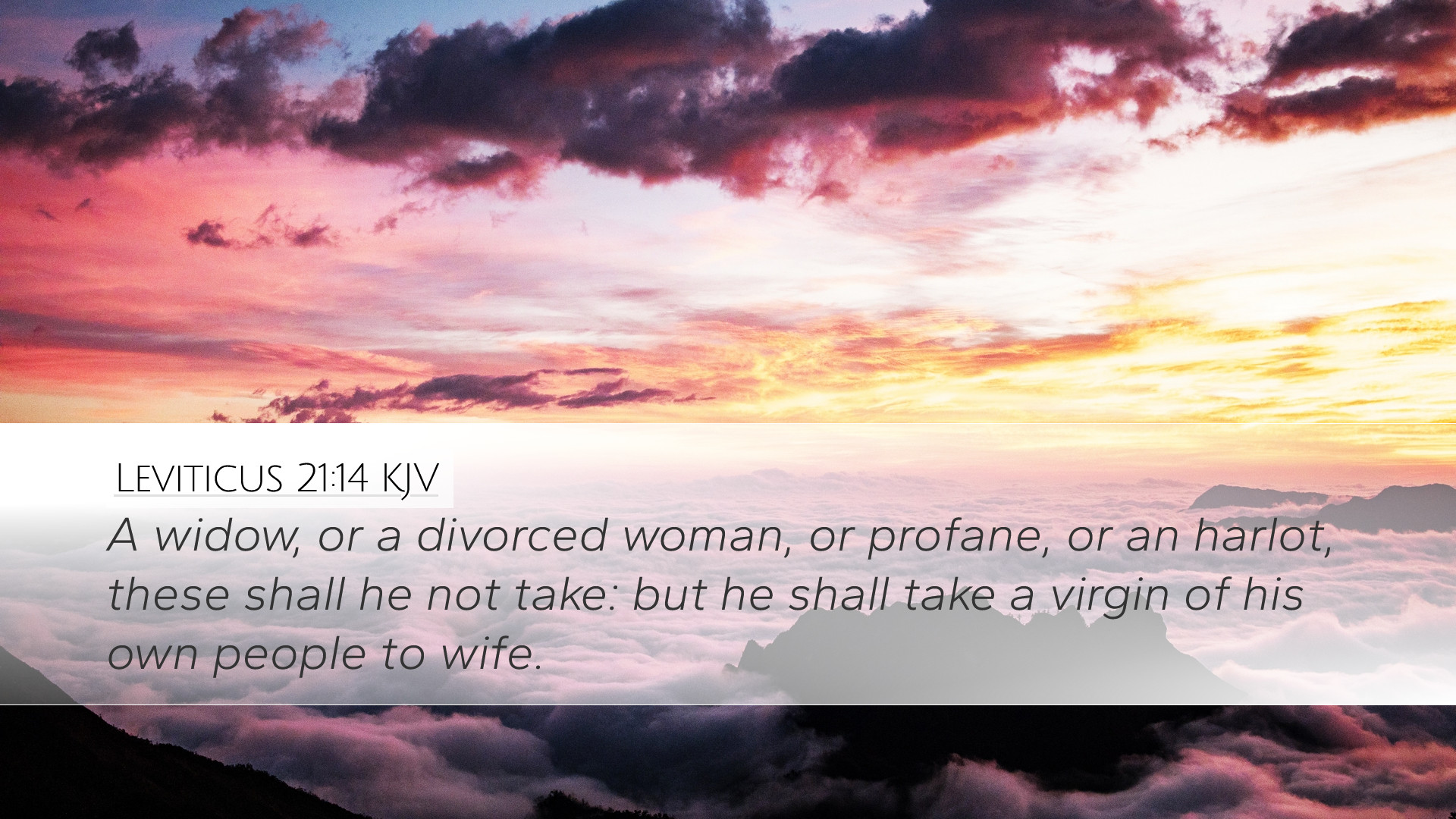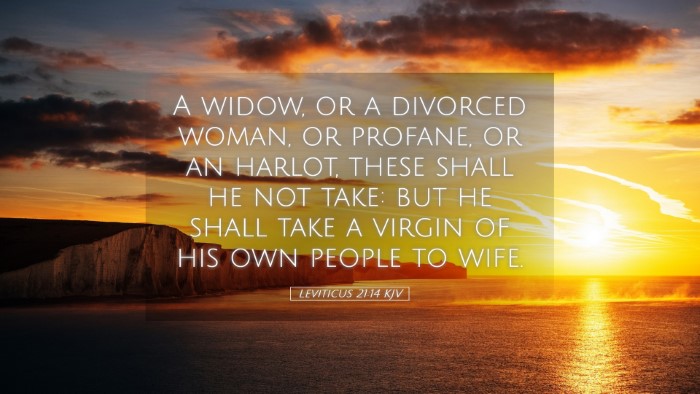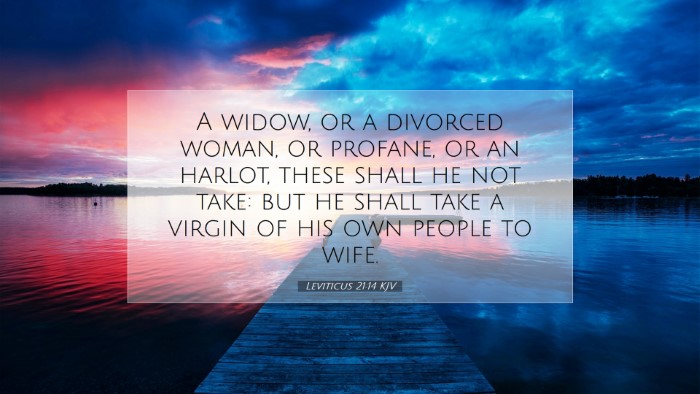Commentary on Leviticus 21:14
Text of Leviticus 21:14 (KJV): "A widow, or a divorced woman, or profane, or a harlot, these shall he not take: but he shall take a virgin of his own people to wife."
Introduction
The verse in Leviticus 21:14 presents God's regulations concerning the priesthood and their qualifications for marriage. This specific stipulation reflects the broader themes of holiness, separation, and the dignity required of those who serve in sacred offices. Various public domain commentaries provide insights into the cultural, theological, and practical implications of this verse.
Contextual Analysis
The surrounding passages in Leviticus focus on the requirements for priests, emphasizing their unique calling and the standards of behavior God expects. As Matthew Henry notes, these qualifications serve not only to maintain the holiness of the priestly line but also to set an example for the people of Israel.
- Holiness and Separation: The priests were to be distinct and separate from all that was common or profane.
- Cultural Relevance: The stipulations reflect the cultural context of ancient Israel, where family lineage and purity were of utmost importance.
Commentary Insights
Matthew Henry's Commentary
Matthew Henry emphasizes the significance of purity in the lineage of the priesthood, stating that the character of the priest was to reflect the holiness of God. He observes that a priest’s household is a representation of God’s covenant people, and thus, he should marry one who embodies the qualities of holiness.
Albert Barnes' Notes
Albert Barnes underscores the importance of choosing a wife who is "of his own people". He suggests that this encourages the preservation of purity within the Israelite community. Since the priest is a mediator between God and man, marrying someone with a questionable background could jeopardize their sacred role.
- Divorce and Widowhood: The stipulations regarding widows and divorced women point to maintaining moral integrity, as these conditions often carry societal stigma, which could distract from a priest's duties.
- Virginity as a Measure of Purity: The insistence on marrying a virgin underscores the value of sexual purity, which reflects upon the priest's role as a leader and an example in the community.
Adam Clarke’s Commentary
Adam Clarke provides further depth by discussing the reasons behind these prohibitions. He points out that these regulations served to highlight the sacredness of the priesthood and safeguard against potential moral failures. Clarke also refers to the symbolic nature of virginity, representing not just physical purity but also spiritual fidelity.
Theological Implications
This verse highlights the importance of holiness within the church and the leadership of God’s people. It shows that God desires those who are set apart for sacred duties to reflect His purity and righteousness. These qualifications can also be seen as a foreshadowing of the New Testament standards for church leaders.
- Preservation of Moral Standards: The insistence on purity serves as a vital reminder to modern church leaders about the importance of maintaining moral standards.
- Qualification for Leadership: The call to holiness is echoed in the New Testament (1 Timothy 3:2) where Paul outlines the qualifications of an overseer, linking leadership in spiritual matters with personal conduct and integrity.
Practical Applications
For pastors, students, and scholars, this verse serves as a profound reminder of the weight of responsibility that comes with spiritual leadership. The call to holiness is not just an Old Testament principle but a timeless standard relevant to every generation of believers.
- Personal Conduct: Leaders must continually examine their lives to ensure alignment with God’s standards.
- Community Reflection: Just as priests were called to represent the people before God, modern leaders are representatives of Christ in their communities.
Conclusion
Leviticus 21:14 articulates crucial principles about marriage, purity, and leadership. These insights from Matthew Henry, Albert Barnes, and Adam Clarke illustrate that the call to holiness affects not only personal conduct but also the broader implications for community and representation before God. In embracing these principles, leaders today can uphold the values of the kingdom, reflecting God's righteousness on earth.


